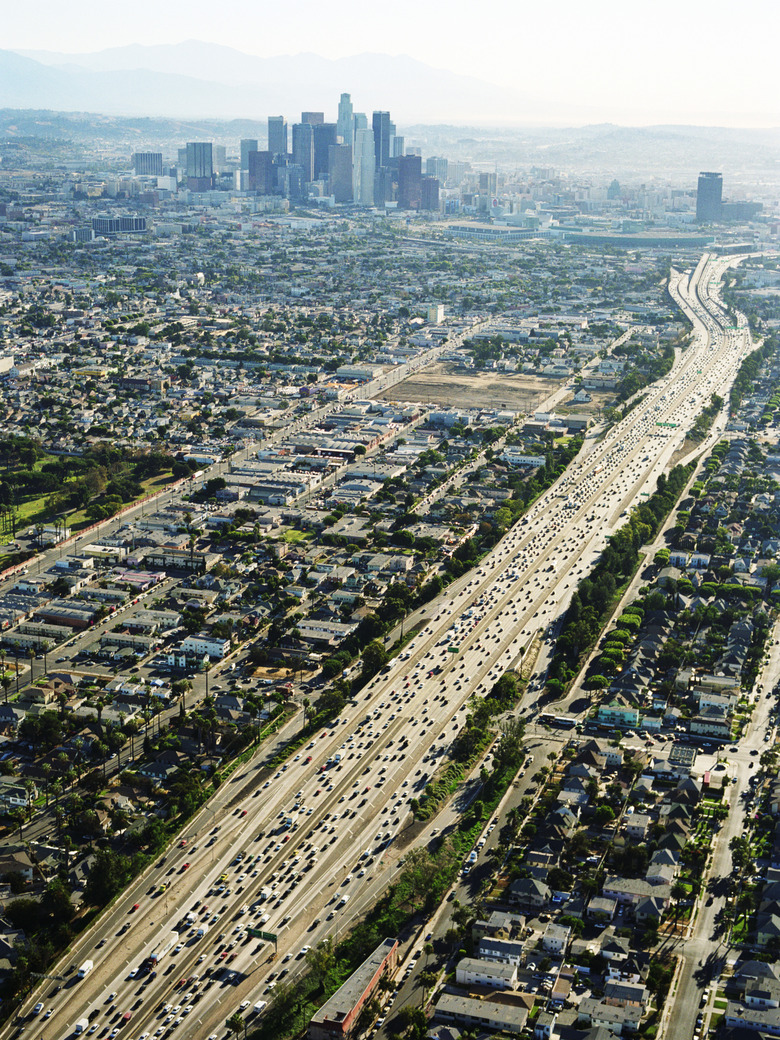Can The Effects Of Pollution Be Reversed?
Pollution is one of the most widespread causes of environmental problems. You can easily clean up and remove some types of pollution, such as litter. However, other forms of pollution, like certain emissions from fossil fuels, remain in the atmosphere for long periods of time. But that doesn't mean the effects of pollution can't be reversed in some cases.
The Three Types of Pollution
The Three Types of Pollution
The type of pollution at hand, as well as the specific pollutant itself, impacts how you approach reversal of the damage done. Pollution generally falls into one of three classes: air pollution, water pollution and land pollution. Air pollution involves pollutants, typically referred to as emissions, that go into the atmosphere. You can see some air pollutants with the naked eye, while others are invisible.
Water pollution involves pollutants that end up in various water sources, such as lakes, rivers, oceans and even the groundwater beneath the surface of the earth. Land pollution involves pollutants that end up on land and in the ground or soil. Land pollution often leads to water pollution as well, as rain can wash the pollutants into water sources.
Air and water pollution are two of the more complicated causes of environmental problems and often require more complex reversal and preventative measures, while land pollution can sometimes be easier to clean up and reverse.
Reversing the Effects of Land Pollution
Reversing the Effects of Land Pollution
Land pollution often occurs through leaks or accidents, such as an oil tank on a property leaking oil onto the surrounding soil. Sites where companies have previously stored or disposed of their industrial waste can also contaminate the ground.
Organizations such as the United States Environmental Protection Agency work to remove contaminants from the ground in cases of land pollution – and other types of pollution as well. They designate funds for cleanup projects to remove and properly dispose of the hazardous materials at these sites. For example, Superfund cleanup projects work to clean and remove pollutants from abandoned hazardous waste disposal sites.
Reversing the Effects of Air Pollution
Reversing the Effects of Air Pollution
Air pollution is one of the most troublesome causes of environmental problems. Reversing the effects of air pollution varies based on the type of pollutant. It can prove difficult to filter an invisible gas from the atmosphere! When it comes to air pollutants, governing bodies typically work on stopping or reducing the emissions rather than cleaning the pollution that has already occurred.
For example, one of the most promising methods of reducing air pollution is eliminating methane emissions. Methane contributes to both greenhouse gases and ground-level ozone that contributes to respiratory health conditions. However, it has a very short lifespan in the atmosphere, so by reducing methane emissions now we can improve air quality drastically in a short period of time.
Reversing the Effects of Water Pollution
Reversing the Effects of Water Pollution
Different forms of water pollution pose different problems for cleanup efforts. In some cases, pollutants can be physically removed from the water using nets or siphons. For example, patches of floating garbage can be removed using nets and cleanup crews, and oil spills can be siphoned off the surface of the water using specialized boats.
However, that doesn't solve the problem of the less accessible pollutants. One example of these is the particulate plastics that reach the seafloor and accumulate within fish and other aquatic wildlife. And in the oil spill example, the oil that dissipates into the sediment can remain there for decades to come. This is why addressing pollution, from air to water and land, must be done on a large scale and combined with preventative measures for the best chance at success and keeping our ecosystems healthy.
References
- National Geographic: Pollution
- Climate & Clean Air Coalition: Reducing Methane Emissions is One of the Most Powerful Tools in the Global Fight Against Ecosystem Degradation
- United States Environmental Protection Agency: Progress Cleaning the Air and Improving People's Health
- Science Learning Hub: Cleaning Up the Oil Spill
- United States Environmental Protection Agency: Basic Information About Cleanups
Cite This Article
MLA
Zinni, Yasmin. "Can The Effects Of Pollution Be Reversed?" sciencing.com, https://www.sciencing.com/can-effects-pollution-reversed-23523/. 20 October 2021.
APA
Zinni, Yasmin. (2021, October 20). Can The Effects Of Pollution Be Reversed?. sciencing.com. Retrieved from https://www.sciencing.com/can-effects-pollution-reversed-23523/
Chicago
Zinni, Yasmin. Can The Effects Of Pollution Be Reversed? last modified August 30, 2022. https://www.sciencing.com/can-effects-pollution-reversed-23523/
